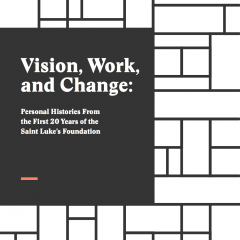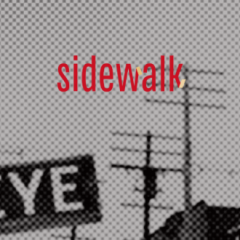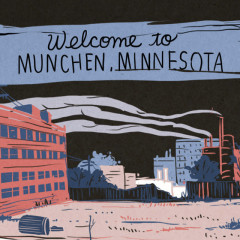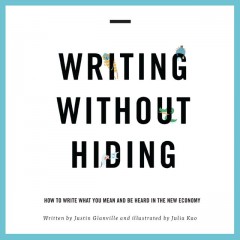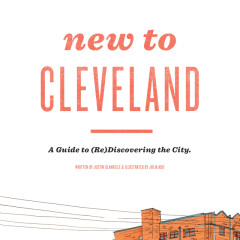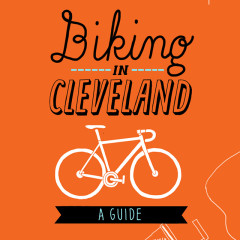Note: This is an early draft of a personal essay. The final meet cute in my month-long experiment! Thanks for reading.
For about half of my 20s, I worked as a news researcher and then a reporter for The Associated Press in New York.
I loved the arts. So I often asked for assignments to interview actors and musicians who were in New York promoting their latest album, movie or show.
Tempting as it was to pitch my editors on whatever of my current or childhood idols was currently in town, I rarely did so.
The reason why was Unappreciated Rock Star X.
Unappreciated Rock Star X was my favorite recording artist when I was in my mid-20s. He was a singer-songwriter in the 1970s tradition. Every two years, like clockwork, he’d release an album of poetic songs that shone a light on the darker, thornier side of human relationships. He’d sing them against spare, melancholy instrumental arrangements — an acoustic guitar plucking along, for example, while a Mellotron warbled in the background.
I’d been entranced from the moment I first heard him. I bought all his records the moment they came out. Once, when he played a four-night stand at a tiny club in lower Manhattan, I attended every one of the shows. He played solo, with no band, shuffling his feet and casting down his eyes as he sang his sad songs. I was entranced.
I could be funny and pathologize my fandom: I’d just come through a couple of rough relationships at the time, and his depressive outlook matched my own. Also, I was playing around New York as a singer-songwriter myself: countless open mics and half-empty — but sometimes half-full — clubs.
But that wasn’t all his appeal. To this day, I marvel at the understated beauty of his words and melodies. His songs are complex without calling attention to themselves. They don’t need to be showy or bombastic, just to speak a little truth.
A lot of rock critics loved him, too. But the general public was a different story. His albums sold poorly, only in the low thousands. Nor had he achieved the “cult” status of similarly low-selling acts such as Rufus Wainwright or Belle and Sebastian.
So when he put out a new album in my first year or two at the AP, with a live gig in Manhattan imminent, I dashed off an email to the music editor.
“Can I interview Unappreciated Rock Star X?” I asked.
“That guy? He doesn’t really sell records. Plus, we ran a story on him four years ago.”
“Yeah, but he’s working with a new producer now. Someone who does electronica!” I shot back. “So this is a new direction for him. Plus, it could be a good folo on how his career’s doing.”
Being a cub reporter, I was proud of my use of the AP jargon folo, for followup. Maybe that was part of why the editor green-lighted the story. But the truth was, it was pretty easy to get a green light at AP. We were a subscription service. For our member publications, the more choice we offered the better.
I was off and running.
First, I got comp tickets to his live show, which I attended with his publicist, Jerry, and a friend (my plus one). X was a little fancier this time, performing with a three-piece band and wearing a fashionable black sport coat. But the songs were as spare and gorgeous as ever.
“Why do you think he’s not more famous than he is?” I shouted to Jerry between songs.
Jerry took a drink. “Honestly? I think it’s his voice. A lot of people think he sounds like Kermit the Frog.”
I gaped, offended on X’s behalf. “Seriously? Is that what you think?”
“No! That’s just what I’ve heard.”
“My theory?” I said to Jerry. “Is that he’s just too heart-on-sleeve for most people.”
Jerry nodded. “Could be,” he said.
#
The next day, I was to meet Unappreciated Rock Star X in the lobby of the hotel where he was staying. An AP photographer named Frank accompanied me to snap candid shots while I did my interview. Jerry was there, too, sitting quietly in the background.
When X arrived, he was wearing a threadbare cardigan festooned with tiny nubs — the kind you get when you wash acrylic. His hair was tousled. He wasn’t quite scowling, but his face seemed to teeter on the verge.
I was nervous for two reasons. First, I was meeting a hero. Second, I had the feeling he didn’t want to be here, that I was interrupting his day. Did he hate doing interviews? If so, Jerry hadn’t warned me.
We both ordered coffee. I tried to break the ice by talking about what a fan I was of his music. He thanked me, but his face remained stolid, unsmiling.
But I needn’t have worried. I’d decided to take the “why isn’t X more famous?” angle, so many of my questions were along those lines. X played right along, with answers that were honest and detailed. Maybe his songs were too melancholic, he theorized. He was too quiet, and Americans liked their rock stars rambunctious.
When we were done talking some 45 minutes later, the photographer wanted to get a few posed shots. I could see from the way he shifted in his seat and pulled his sweater sleeves over his hands that this made X uncomfortable, but he assented. Again: Good sport.
The four of us walked outside and behind the hotel. We found a gritty-looking service entrance: Garage door, dumpsters, graffiti, rough brick walls. Manhattan as non-New Yorkers like to see it.
The photographer guided X to a wheelchair-accessible ramp and arranged him in a partly-reclined pose meant to look casual. But X was clearly uncomfortable: All stiff arms and frozen face.
Jerry and I hung back, a few yards away, just out of earshot.
“Boy, he looks like he hates this,” I said to Jerry.
“Well, he’s not the most extroverted guy in the world.”
“Right.” I laughed. “I mean, I would hate it too, if I were him.”
And just at that moment, X glanced over at me. He saw me laughing, and gave me an unmistakable glare.
My face fell. No! I wanted to cry. I wasn’t laughing at you, just sympathizing with the awkwardness of it all!
He came over a few minutes later to shake my hand goodbye. I thanked him for his time, both of us avoiding eye contact. I considered vocalizing my apology for the ill-timed laugh, but realized it would only make the situation more uncomfortable.
We bid farewell, and I returned to the office to file my story.
#
The writing came easily. X had given me exactly what I’d hoped for — a portrait of himself as the Charlie Brown of the music world. Fame and high album sales were his Little Red-Haired Girl, forever coveted, forever elusive.
When I sent the piece to my editor, I felt it was strongly written, full of color. I even managed to work in a paragraph about the worn-out sweater. The editor praised my work and the story received a healthy amount of play in member newspapers.
And yet I felt strangely deflated. When I look back on the story now, it’s not hard to see why. The tone was mopey, a series of “why not me?”’s and ho-hums.
Disillusionment. That’s what I felt. Disillusionment at X’s bitterness and self-pity.
A couple years later, when X released his next album, I bought it in short order. But this time I did so more out of a sense of duty than enthusiasm. By the time he released his next one, I didn’t even notice until months after the fact. I had become one of the negligent millions.
There were other consequences, too. I started to avoid interviewing artists I admired. When one of my all-time favorite musicians traveled to New York from England to do rare publicity for her new album, her publicist practically begged me to do a story. I refused, afraid of losing faith in another idol.
I realize now that feeling was unfair. He might have felt some self-pity, yes, but I’d fanned the flames. I viewed myself as a victim at the time: Of bad relationships and frustrated creativity. What would have happened if I’d instead focused on the beauty of his music and words?
I’d become a mirror for his self-pity, reflecting it back to him. It was into that mirror he’d glared.


